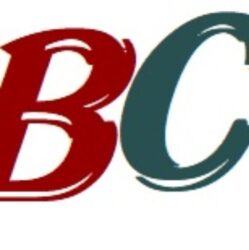Whoops and cheers shattered the cold morning air as the first legal cannabis customers flooded into a government-run marijuana store in this western Canada city on Wednesday.
Tucked into a shopping plaza near a dry cleaner, liquor store and a dollar store, this small, brightly lit store about 200 miles north of Vancouver has planted itself on the global front lines of the battle over cannabis legalization. It’s one of only a handful of weed stores in the country as Canada became only the second country behind Uruguay and the first member of the prominent Group of Seven nations to legalize, regulate and tax the sale of marijuana.
Dubbed “Weed Wednesday,” the event was heralded by legalization advocates who hope Canada’s new law will lend weight to federal approval in the United States.
“It’s like adult Christmas,” said Becky Prete, the first customer into the store when it opened. Prete, 37 is a cannabis-industry worker who bought 30 grams, the maximum allowed under the marijuana legalization policy, spending around $230 for boxes of dried marijuana. But Prete said she wasn’t even sure how much she spent.
“I was just too excited about getting it,” she said.
Store managers held no ceremony to mark the opening, and opened the doors without fanfare shortly after 10 a.m. The low-key nature of the opening belied the momentous nature of the occasion: A government-sanctioned marijuana store selling cannabis products to customers 19 and older, for cash or credit.
But the store in Kamloops will remain an anomaly for now. Few weed shops opened across Canada Wednesday after legalization officially began at midnight as local governments struggled to catch up to the law, although government regulators reported strong online sales. Across Ontario, marijuana sales were initially limited to mail-order only, meaning buyers in Toronto and Ottawa won’t have access to marijuana stores like this one for weeks to come. The first mail-order deliveries are expected to arrive at customers’ doors in two days.
“We have turned the page on eight decades of failed prohibition with a sensible, responsible and equitable plan that will protect youth and displace the illegal market,” tweeted Canadian Health Minister Ginette Petitpas Taylor.
Government regulators picked Kamloops, a city of about 90,000 people, because local officials were the first to get their licensing paperwork in order. The Kamloops store drew a crowd of about 150 before throwing open its doors.
To buy or possess cannabis, you must be at least 18 and in some cases 19, depending on which province or territory you’re in. Canadian law contains strict penalties for giving marijuana to minors. However, there is no residency restriction, which means Americans who meet the age requirement will be allowed to purchase pot. Buyers are limited to 30 grams at a time, with prices set in part by government regulators who serve as middlemen between growers and stores. Buyers are also largely limited to smokeable “flower” marijuana – cannabis-infused foods known as edibles and some concentrated forms of marijuana are still banned and are being studied by government health experts.
Prime Minister Justin Trudeau’s government, meanwhile, announced plans Wednesday to pardon people previously convicted of minor marijuana offenses that are now legal. Trudeau pledged to legalize cannabis during the 2015 election, arguing that government-regulated pot would reduce the black market and free up law enforcement resources.
“Profits out of the hands of criminals. Protection for our kids. Today #cannabis is legalized and regulated across Canada,” Trudeau said in a statement posted to Twitter.
Not everyone is happy. The anti-legalization group Smart Approaches to Marijuana announced Wednesday that it’s launching a Canada-focused effort to track any ill effects associated with legalization, including accidental ingestion by kids and any increases in drugged-driving crashes. It also noted that Canada’s national-level legalization puts it in violation of international drug-control treaties.
And some advocates say the country’s tightly regulated system shuts out advocates who’ve spent decades fighting for legalization and decriminalization.
“I’m happy that it’s being legalized. I’m not happy with how it’s being legalized,” said Dillon McArdle, 26, who has spent months protesting in downtown Vancouver for better access to both medical and recreational marijuana. McArdle on Wednesday maintained his small protest on a downtown street, where he gives away marijuana to anyone who wants it.
“I’d like to see equal rights to grow it, use it and sell it,” he said.
Marijuana has rapidly become big business across Canada, and entrepreneurs in the United States are closely watching how Canada’s legalization rolls out, hoping that a smooth process will bolster their efforts to get cannabis legalized at the federal level under the Trump administration. California, Colorado, Vermont, Oregon, Alaska, Washington, Maine, Nevada and Massachusetts have all legalized recreational cannabis use, as has the District of Columbia, but the pot industry remains wary of a Trump crackdown in the absence of federal legalization.
Many U.S.-based cannabis company leaders say the United States risks falling behind the Canadians, whose government is closely involved in every step of the marijuana sales process, with billions of dollars at state. Canada’s legal market could be worth as much as $1.3 billion this year, leaping to $5.4 billion by 2022, according to a study by Arcview Market Research in partnership with BDS Analytics.
“Our only concern is that the U.S. is falling behind as a capitalist world leader and industry trailblazer by not reaping the commercial benefits of federal legalization,” said Ryan Smith, the CEO of LeafLink, a B2B cannabis marketplace.
Business leaders and politicians are increasingly becoming comfortable with the cannabis industry in both the U.S. and Canada — fast-growing Acreage Holdings on Wednesday announced that former Canadian Prime Minister Brian Mulroney, a Conservative, is joining its board, which already includes former U.S. House Speaker John Boehner and former Massachusetts Gov. Bill Weld, both Republicans, along with a former IBM CFO.

